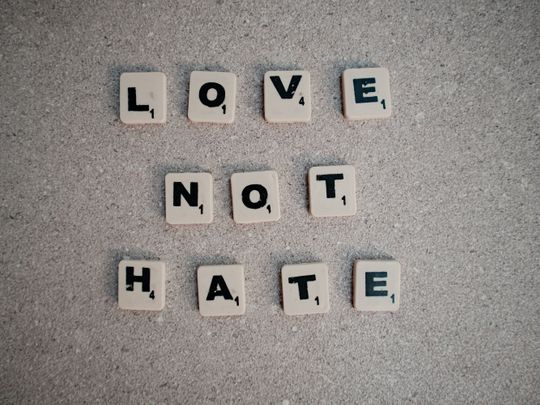
Every year on 14 February, people worldwide observe the day as Valentine’s Day. It is a very old tradition; its significance has, however, evolved over time into a secular celebration of love and affection.
The day is being celebrated more and more, and there is no doubt that the world needs to bask in love as it promotes positive values and relationships, which can help to bring people together and create a more harmonious society.
Love is a powerful force that can inspire kindness, compassion, empathy, understanding and help heal wounds and bridge divides.
Undoubtedly, Valentine’s Day has become more popular globally in recent years. The spread of Western culture, increased globalisation, and the rise of social media have made it easier for people to connect and share their love and affection with others.
One expects that the increasing celebration of love on this day can help create a world where everyone feels valued and included, where differences are respected, and peace and harmony are the norms. But that has not been, unfortunately, the case.
The world may be witnessing the widespread celebration of Valentine’s Day, but the world is not becoming peaceful and collaborative, but rather more hateful and violent.
Countries have not only started fighting more wars, but the wars have also become deadlier, and there is even real fear of a new world war.
Looming nuclear threat
More countries are trying to own nuclear weapons, and the existing nuclear power countries are spending billions of dollars to modernise their nuclear weapon systems by digitalising and automising the control. Countries spend more than two trillion dollars on military annually, and the amount spent on armed forces in 2021 was 10% higher than in 2011.
Not only are countries fighting more wars against one another, but the number of internal armed conflicts is also rising, and fatalities are also increasing. Genocide, mass killings, war crimes, and various human rights violations continue to endanger peace and security — locally, nationally, regionally, and globally.
Racism and xenophobia are being increasingly used to divide people and societies, and the rising political and social polarisation leads to more violence. Conflicts and violence are forcing people to move to places searching for safety. An increasing number of refugees also poses a severe challenge to the peace and security of many refugee-receiving countries.
_resources1_16a08522ed8_original-ratio.jpg)
Even before the start of the Ukraine War last year, conflict and violence used to cost more than 14 trillion dollars a year, nearly $5 a day for every person on the planet. More than 10 per cent of the global GDP is being consumed to offset the costs of violence.
At the same time, around 828 million people in the world are affected by hunger, and 2.3 billion people are food insecure. By the end of 2022, as per the World Bank’s estimate, 685 million people were living in extreme poverty, living on less than $2.15 per person per day.
Gap between rich and poor
More than two decades have passed in the 21st Century; still, one in three people in the world continues to live without clean drinking water; and more than half of the global population lacks safely managed sanitation services. As many as 800,000 people die worldwide every year from diseases caused due to lack of clean water.
The gap between rich and poor is widening. Income inequality is growing for most of the world’s population, leading to more societal divisions and distrust and adversely affecting economic development and social well-being.
The world is more divided than before, economically, politically, and socially. The Covid-19 pandemic, a global crisis that has affected almost every country in the world, demanded the need for international cooperation and solidarity.
Instead, despite the magnitude of the crisis, the pandemic brought out deep-seated tensions and differences between countries and societies. While climate change threatens the planet’s survival and asks for a global solution, there is a growing lack of trust, and countries are blaming each other instead of cooperating.
An increasing number of people are being pushed into poverty and suffering from hunger and malnutrition. Still, the rich and powerful countries are decreasing the development aid and competing among them to send more tanks and fighter jets to sustain a war.
The rise of populist leaders worldwide has divided societies and people further. The political discourses have become toxic and vicious.
People vs the elites
Some populist politicians are creating narratives that pit “the people” against “the elites” or other marginalised groups, such as immigrants, minorities, or the media. Their rhetoric fuels mistrust and hatred and leads to increased discrimination and violence.
Though people are celebrating Valentine’s Day more and more, it is not love, but hate has become the most powerful force in the world. Hate fuels conflicts and violence by leading to distrust, division, and hatred between people, groups, societies, and countries.
Hate undermines social cohesion and stability and creates a hostile environment for marginalised and minority groups. Thus, celebrating Valentine’s Day must remind individuals, societies, and states to commit themselves to combat hate and promote greater understanding and respect for diversity.
Love needs to win over hate for us, the humanities, to succeed.









